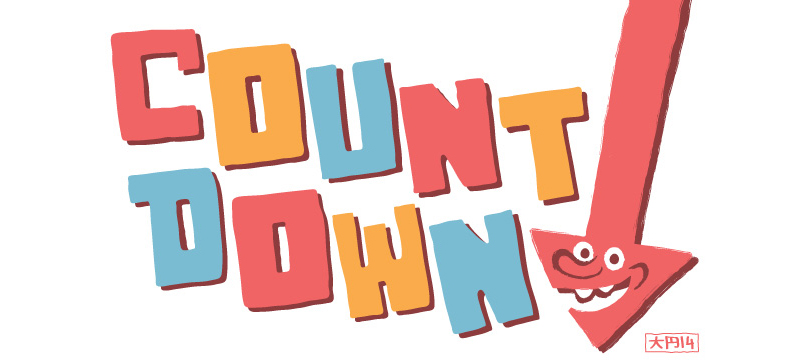Right now, you are probably finding yourself held hostage inside your home by the wily spectre of Old Man Winter. Do not panic, instead, why not entertain yourself (and your pals) with an old-fashioned board game? When you do, though, you may want to avoid these ones.
Top 7 weirdest board games
SEVEN
The Exciting Career Game for Boys / The Exciting Game of Career Girls (USA, 1968 / 1966)
While the career options for boys showcased in this game do indeed sound exciting (statesman, scientist, athlete, astronaut, doctor), we suspect that the word ‘exciting’ has never before been so liberally applied as it is in the title of the girls’ edition (in which the career choices are: airline hostess, teacher, nurse, and model).
SIX
Monopoly
Over the years, the Parker Bros. have licensed many, many strange special editions of Monopoly. Monopoly: Bass Fishing Edition, anyone? How about Monopoly: Heinz Ketchup Edition? Or Monopoly: Dachshund Edition? Or Monopoly: HP Invent Supply Chain Edition? And the list goes on. Out there in a
penthouse somewhere, Rich Uncle Pennybags is leaning back in a leather chair, sucking on a stogie and peeling bills from his bulging wads of cash. And he is chuckling.
FIVE
Kolejka (Poland, 2011)
A best-seller in its homeland, Kolejka (Queue) has perhaps the least-thrilling concept in board game history: players must queue up to buy goods at various stores. You can imagine the madcappery that ensues from that premise. Produced by Poland’s Institute of National Remembrance as a history lesson, the game is intended to teach young players about what life was like under communism. Apparently there was a lot of queueing.
FOUR
Murder, She Wrote (USA, 1991)
On the list of television programs that we’d like to see adapted into board games, Murder, She Wrote ranks somewhere so low that mathematics has yet to discover an integer large enough to specify here. Described on the box as “a game of strategy and pursuit” (two qualities that were rarely, if ever, showcased on the TV show), the game sees players take on the role of amateur detective / octogenarian author Jessica Fletcher, who is hot on the trail of a killer. The only thing that could possibly be worse would be a board game of Quincy, M.E.
THREE
Capital Punishment (USA, 1981)
Obviously, all the funnest board games take their themes from hot button social issues. Potentially the funnest of all is this game, in which players take on the role of death row prisoners moving along the “Path of Justice” towards the electric chair. Skilled players will use their “Liberal Intervention” cards to turn inmates back out onto the “Street”, where they can commit violent acts on “Innocent Citizens” and send them to a section of the board known as “Heaven”. The game ends when Heaven is full of either prisoners or Innocent Citizens. And a good time is had by all.
TWO
BP Offshore Oil Strike (Scotland, 1973)
Ambitiously described on the box as “an exciting board game for all the family”, this game sees each player take the role of a petrochemical conglomerate, dropping oil rigs off the coast of the United Kingdom and accumulating charmingly-named “Offshore Petro-Dollars”. During the course of the game, players will enjoy navigating the minutia of large-scale drilling platform operations (“Rig shuts down while replacement of key personnel takes place. Miss one turn.”). The goal of the game is true to the real-world oil game: “the 1st player to make $120,000,000 cash is regarded as the winner”.
ONE
“Juden Raus!” (Germany, 1938)
Yes, here it is: the worst board game ever created. Produced for Nazi Germany by company Günther & Co. and described in the rulebook as a “jolly party game”, the translation of the title (“Jews Out!”) should give you a hint as to the theme of the game. Here, players move small figurines around a board to represent the deportation of Jewish people, with the first person to expel six Jews named the winner. Happily, the game was a miserable commercial failure and, still more humiliatingly, it was slammed even by the SS, who accused it of trivialising Nazi party policies. When even racist dictatorships refuse to get behind your anti-Semitism, you know you have a bad product.





